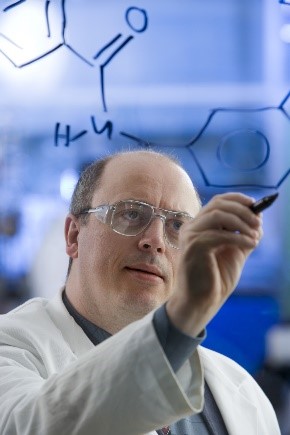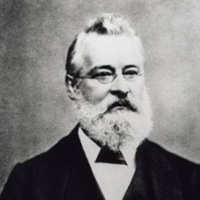‘Molecular Inorganic Chemistry – new approaches towards medical imaging agents and 2D semiconductors’
18 April 2024
Professor Gill Reid BSc, PhD, FRSC
Professor of Inorganic Chemistry; President of the RSC
- Time: 16:00 – 17:00 BST
Venue: CAGB LT 200, City and Guilds Building
Location: Imperial College London, South Kensington campus, Imperial College Road, London, SW7 2AZ
The South Kensington campus is easily accessed via a 10 minute walk from South Kensington tube station. There is also space for car/coach drop-off and pick-up inside the entrance to Imperial College Road (please contact us for details).
About the talk
This lecture is recommended for students in Years 10-13, and their teachers and parents.
Professor Gill Reid is a Professor of Inorganic Chemistry and former Head of the School of Chemistry at the University of Southampton. She became President-Elect of the Royal Society of Chemistry (RSC) in July 2020 and RSC President in 2022.
This talk will discuss how, as chemists, we can create new compounds that have specific features built in to allow them to be exploited for very diverse applications. This will be exemplified through two distinct targets.
Firstly, Prof. Reid will focus on some of the key design features of metal-containing compounds that are necessary for effective binding of the fluorine-18 radioisotope for the development of next generation medical imaging agents.
She will then discuss briefly the design of molecular precursor compounds that allow the controlled electrochemical growth of 2-dimensional layered semiconductors, towards next generation electronics applications.
About the lecturer
---medium-jpeg.jpg) Gill has a keen interest in chemistry education, outreach, and public engagement. Currently, her teaching encompasses various subjects, including transition metal and main group coordination chemistry, as well as macrocyclic chemistry.
Gill has a keen interest in chemistry education, outreach, and public engagement. Currently, her teaching encompasses various subjects, including transition metal and main group coordination chemistry, as well as macrocyclic chemistry.
Gill joined the University of Southampton in 1991 as a Lecturer in Inorganic Chemistry. She was Director of Chemistry Outreach for 10 years (2000-2010), concurrently leading successful projects supported by EPSRC and the RSC. Gill became a Professor in 2006, and was Head of School from 2016-2020. Her contributions were acknowledged with the University of Southampton Vice Chancellor's Award for Teaching in Chemistry in 2006 and an RSC Award for Achievement in the Promotion of Chemistry in 2007. She has also served as an External Examiner for undergraduate degree programs in multiple UK Chemistry Departments.
Gill chaired the RSC Outreach Working Group from 2014 to 2018 and played a key role in organizing the 'Taking Technology Smaller' exhibit at the 2015 Royal Society Summer Science Exhibition, based on the EPSRC flagship Programme, 'Supercritical Fluid Electrodeposition.'
Gill has presented her research on fundamental studies and applications of synthetic coordination and organometallic chemistry, on many occasions, including a Discourse at the Royal Institution in September 2023. She also discussed how Chemistry is tackling some of society’s greatest challenges for the BBC Radio 4 show, “The Life Scientific”.
She is a Fellow of the Royal Society of Chemistry, a Fellow of the Royal Society of Edinburgh, a Fellow of the European Academy of Sciences and a recipient of the IUPAC 2023 Distinguished Women in Chemistry Award.
How to book:
The lecture is free, but spaces are limited in the lecture theatre, and are available on a first-booking basis. We will be holding a reserve list, in case of cancellations.
Please complete the booking reservation to reserve a place. Bookings will close on Monday 8 April 2024. For any enquiries regarding accessibility arrangements or your booking, please see contact details below.
Optional activities:
Please arrive 15 minutes before your allocated time
| Tour of South Kensington Campus | 13:00-13:30; 13:45-14:15; 14:30-15:00; 15:15-15:45 |
|---|---|
| Tour of Department of Chemistry | 13:10-13:30, 13:40-14:00, 14:20-14:40, 15:10-15:30 |
| Tour of the Chemical Kitchen * | 13:10-13:30, 13:40-14:00, 14:20-14:40, 15:10-15:30 |
*The tour of the Chemical kitchen will include a demo of the encapsulation of food products using alginate. Participants will be able to get hands-on and will be able to eat the result of what they make.
Contact Details:
For any enquiries related to bookings, activities, access arrangements or parking, please contact Raj Sandhu or Keegan Lutherus (Department of Chemistry Outreach).
You may also be interested in:
Our previous Newlands Lecture, was given by Prof David Leigh in 2023, Royal Society Research Professor & Sir Hall Chair of Chemistry, Department of Chemistry, University of Manchester, UK
'The Magic of Molecular Machines’
April 2023 lecture
With Professor David Leigh FRS, FRSE, FRSC, MAE
Over the past few years some of the first examples of synthetic molecular level machines and motors – though primitive by biological standards – have been developed. Recently the first programmable systems have also been developed, the forerunners of a new technological era of molecular robotics.
Perhaps the best way to appreciate the technological potential of controlled molecular-level motion is to recognise that nanomotors and molecular-level machines lie at the heart of every significant biological process. Over billions of years of evolution, Nature has not repeatedly chosen this solution for achieving complex task performance without good reason. In stark contrast to biology, none of mankind’s fantastic myriad of present day technologies exploit controlled molecular-level motion in any way at all: every catalyst, every material, every plastic, every pharmaceutical, every chemical reagent, all function exclusively through their static or equilibrium dynamic properties.
When we learn how to build artificial structures that can control and exploit molecular level motion, and interface their effects directly with other molecular-level substructures and the outside world, it will potentially impact on every aspect of functional molecule and materials design. An improved understanding of physics and biology will surely follow.
About the lecturer

Professor David Leigh FRS (www.catenane.net) is one of the pioneers of the field of artificial molecular machinery. He has received a number of major national and international scientific awards, including the Feynman Prize for Nanotechnology (2007), the Royal Society Bakerian Medal (2013), the Royal Society of Edinburgh Royal Medal (2021), and the International Society for Nanoscale Science, Computation and Engineering Nanoscience Prize (2019). He was elected a Fellow of the Royal Society (FRS) in 2009. Prof. Leigh is a Royal Society Research Professor at the University of Manchester and a Distinguished Professor at East China Normal University, Shanghai.
Past lectures
- 2023 - 'The Magic of Molecular Machines’ by Professor David Leigh FRS, FRSE, FRSC, MAE
- 2021 - 'Chemistry and Sustainability: healthy planet, healthy future' by Professor Tom Welton OBE FRSC
- 2019 - 'Doing chemistry with electrons' by Professor Philip N Bartlett FRS FRSC
- 2018 – 'Functional Coatings' by Professor Ivan Parkin
- 2016 – 'From Waste to Wealth' by Professor James Clark
- 2015 – 'Landing on a Comet' by Professor Monica Grady CBE
- 2014 – 'Strange Ice' by Professor Andrea Sella
- 2013 – 'A Little Light Relief' by Professor David Phillips FRS
About John Newlands
 This lecture series is named after John Alexander Reina Newlands, who was born in Lambeth, South London, and educated at the Royal College of Chemistry - a forerunner of Imperial College London. He is best known for devising an early form of the Periodic Table of the Elements.
This lecture series is named after John Alexander Reina Newlands, who was born in Lambeth, South London, and educated at the Royal College of Chemistry - a forerunner of Imperial College London. He is best known for devising an early form of the Periodic Table of the Elements.
In the middle of the 19th century many of the elements we know today had been discovered and characterised. Chemists had begun attempts to sort them into a logical sequence based on their chemical properties. In 1864, Newlands listed the known elements in order of increasing atomic mass and found a repeating pattern of properties for each eighth element. He developed a rudimentary form of periodicity that he called the 'Law of Octaves'. However, his scheme failed when extended to the heavier elements and was therefore not accepted by his contemporaries.
In 1868, Mendeleev published his arrangement of the elements that forms the basis of the Periodic Table we know today. Mendeleev's table enabled him to predict the existence and properties of hitherto unknown elements. The discovery of these 'missing' elements and confirmation of their properties led to the rapid acceptance of Mendeleev's table.
Acknowledgements
This lecture series is organised by the Department of Chemistry in collaboration with Outreach team. The lectures are supported by the Royal Society of Chemistry Chilterns and Middlesex section, with special thanks to Dr Stephen Robinson.
For more information about the Newlands Lecture Series, please contact Simon Gerrard at Chemistry Outreach.
Outreach Newsletter
Sign up to our newsletter and mailing list for updates about Outreach events and activities.
